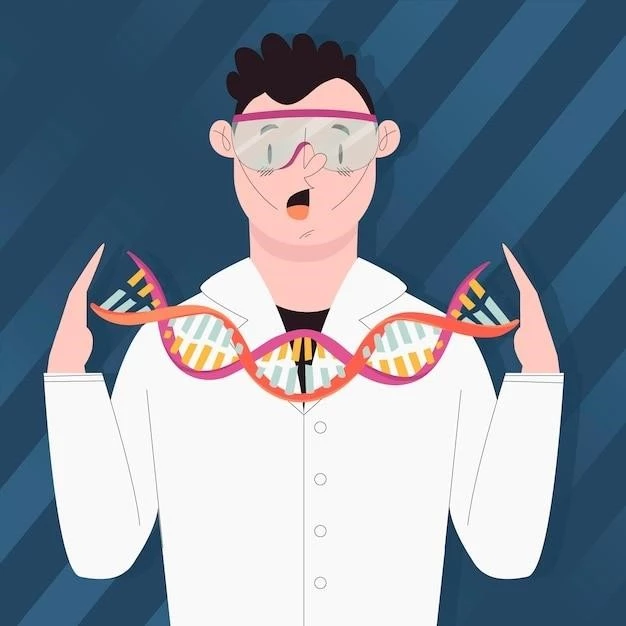Chromosome 4 Disorders
Trisomy 4q Syndrome
Trisomy 4q syndrome, also known as partial trisomy 4q, is a rare chromosomal disorder caused by an extra copy of the long arm (q) of chromosome 4 in some or all cells of the body. This condition is typically diagnosed through genetic testing such as karyotyping.
Individuals with trisomy 4q syndrome may exhibit a range of physical and developmental characteristics including developmental delays, intellectual disabilities, distinctive facial features, and structural anomalies in various organ systems. The severity of symptoms can vary widely among affected individuals.
Management of trisomy 4q syndrome involves a multidisciplinary approach with interventions tailored to address the specific needs of each individual. This may include early intervention services, speech therapy, physical therapy, and educational support.
Research regarding trisomy 4q syndrome is ongoing, with a focus on understanding the genetic mechanisms involved and exploring potential treatment options. Due to the rarity of this condition, support networks and resources for affected individuals and their families are crucial for promoting awareness and providing assistance.
Genetic Abnormalities on Chromosome 4
Chromosome 4 is a crucial component of the human genome, containing numerous genes responsible for various biological functions. Genetic abnormalities on chromosome 4 can lead to a diverse array of disorders and conditions, impacting individual health and development.
One well-known genetic abnormality on chromosome 4 is Wolf-Hirschhorn syndrome, a rare chromosomal disorder characterized by developmental delays, intellectual disability, distinctive facial features, and heart defects. This syndrome is caused by a deletion on the short arm (p) of chromosome 4.
Another genetic abnormality linked to chromosome 4 is hereditary spastic paraplegia, a group of neurodegenerative disorders that affect the brain and spinal cord. Some forms of this condition are associated with mutations in genes located on chromosome 4.
Additionally, chromosome 4 harbors genes related to lipid metabolism, immune function, and growth regulation. Mutations or deletions affecting these genes can lead to disorders such as lipoprotein lipase deficiency, immunodeficiency syndromes, or growth hormone insensitivity.
Studying genetic abnormalities on chromosome 4 is essential for advancing our understanding of human genetics and providing insights into the molecular basis of various diseases. Continued research in this field is crucial for developing targeted therapies and personalized medicine approaches to address these genetic disorders effectively.
Chromosomal Disorders Involving Chromosome 4
Chromosomal disorders involving chromosome 4 encompass a spectrum of genetic conditions that result from structural changes or abnormalities affecting this specific chromosome. These disorders can manifest in various ways, impacting an individual’s health and development.
One example of a chromosomal disorder involving chromosome 4 is Cri du Chat syndrome, which is characterized by a deletion on the short arm of chromosome 5. Individuals with this syndrome often exhibit distinctive features such as a high-pitched cry resembling a cat’s meow, developmental delays, and intellectual disability.
Another chromosomal disorder associated with chromosome 4 is Langer-Giedion syndrome, caused by a deletion on the long arm of chromosome 8 that includes a region of chromosome 4. This syndrome is characterized by multiple skeletal anomalies, intellectual disability, and distinct facial features.
Furthermore, chromosomal translocations involving chromosome 4 can result in conditions such as acute myeloid leukemia (AML). Certain subtypes of AML are linked to specific translocations that involve genes on chromosome 4٫ impacting normal blood cell development and leading to the proliferation of abnormal cells.
Understanding the genetic mechanisms underlying chromosomal disorders involving chromosome 4 is vital for accurate diagnosis, prognosis, and the development of targeted therapies. Research in this area continues to provide valuable insights into the complexities of these disorders and potential treatment strategies.
Partial Trisomy Conditions and Distal 4q Deletion
Partial trisomy conditions involving chromosome 4, particularly the distal 4q region, can result from an extra copy of a portion of the long arm of chromosome 4. This genetic imbalance can lead to a range of developmental challenges and physical anomalies in affected individuals.
Individuals with distal 4q duplication may exhibit features such as intellectual disability, motor delays, speech and language difficulties, and distinctive facial characteristics. The severity of symptoms can vary based on the specific genes duplicated and their impact on development.
In contrast, distal 4q deletion occurs when a segment of the long arm of chromosome 4 is missing. This deletion can result in intellectual disability, growth delays, skeletal abnormalities, and congenital heart defects. The clinical presentation of distal 4q deletion syndrome is influenced by the size and location of the deleted region.
Diagnosis of partial trisomy conditions and distal 4q deletion often involves chromosomal microarray analysis or other genetic tests to identify the specific chromosomal abnormalities present. Early intervention and individualized support services are essential for addressing the unique needs of individuals affected by these genetic imbalances.
Research into the molecular mechanisms underlying partial trisomy conditions and distal 4q deletion is crucial for understanding how gene dosage alterations impact development and identifying potential therapeutic targets to improve outcomes for affected individuals.
Rare Genetic Diseases Linked to Chromosome 4
Chromosome 4 is associated with several rare genetic diseases that manifest due to alterations in specific genes located on this chromosome. These rare diseases present unique challenges in diagnosis٫ management٫ and treatment٫ often requiring specialized care and expertise.
One example of a rare genetic disease linked to chromosome 4 is hereditary angioedema type III, a disorder characterized by recurrent episodes of severe swelling in various body parts. This condition is caused by mutations in the F12 gene located on chromosome 4, leading to dysregulation of the immune response.
Another rare genetic disease associated with chromosome 4 is autosomal dominant polycystic kidney disease (ADPKD). Mutations in the PKD1 gene on chromosome 4 can result in the formation of fluid-filled cysts in the kidneys, leading to kidney dysfunction and potentially other complications.
Additionally, chromosome 4 is implicated in rare neurodevelopmental disorders such as epilepsy and autism spectrum disorders. Genetic variations on this chromosome can contribute to the complex etiology of these conditions, influencing brain development and neural functioning.
Research efforts focused on understanding the genetic basis of rare diseases linked to chromosome 4 are essential for advancing diagnostic capabilities, exploring targeted therapies, and providing personalized treatment approaches for affected individuals. Collaboration between clinicians, researchers, and genetic counselors is critical in navigating the complexities of these rare genetic conditions.
Understanding Chromosome 4 Abnormalities

Comprehensive understanding of chromosome 4 abnormalities is crucial in the realm of clinical genetics and medical research. Chromosome 4 plays a significant role in human health, carrying a diverse array of genes vital for various physiological processes and development.
Abnormalities involving chromosome 4, such as duplications, deletions, translocations, and mutations, can lead to a spectrum of genetic disorders with distinct clinical presentations. These abnormalities may affect gene expression, protein production, and cellular functions, contributing to the pathogenesis of diverse diseases.
Research focused on elucidating the molecular mechanisms underlying chromosome 4 abnormalities is essential for unraveling the genetic basis of associated conditions and identifying potential therapeutic targets. Genome-wide studies, next-generation sequencing technologies, and functional genomics approaches are instrumental in exploring the complexities of these genetic variations.
Furthermore, understanding the phenotypic manifestations and genotype-phenotype correlations of chromosome 4 abnormalities aids in accurate diagnosis, prognosis, and personalized management of affected individuals. Genetic counseling and interdisciplinary collaborations are integral in providing comprehensive care and support to patients and families impacted by these conditions.
Advancements in genomic medicine and precision therapeutics hold promise for addressing chromosome 4 abnormalities and associated disorders. By continuing to deepen our understanding of these genetic variations, we can enhance diagnostic capabilities, develop targeted interventions, and improve outcomes for individuals with chromosome 4-related conditions.
